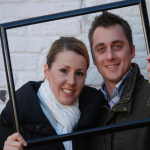Some lessons come from cultivated, intimate moments. Others grow from hardship. Kriste Peoples shares what she’s learned about love, courtesy of Dad.
I don’t have many memories of my dad. But I certainly learned a lot by his example.
My parents divorced when I was small, and to say that my father wasn’t involved in much of my life wouldn’t exaggerate the facts by much. And it’s his overall absence that has taught me much about presence in my relationships—for better or worse.
Friedrich Nietzche once said, “When one has not had a good father, one must create one,” and I think he’s right. What follows are some of the biggest lessons I’ve learned from my own father—in his absence and presence, real and imagined—over time.
Fathers are human.
The first self-help book I’d ever read contained an exercise that had me re-imagine my parents as children. Never having been especially close to my father, I was surprised at the version of him I made-up as a child. I wanted to believe more than anything that he and I would have been great friends as kids, climbing trees, playing together, racing repeatedly up the block until we got called in for dinner.
Even now, I remember the surprise of sadness at the thought of him growing up and away from our imagined friendship. Doing that exercise was the first time I saw my father as a real person I understood, felt connected to, had compassion for, and loved beyond reason.
Love is unconditional.
Each time I talked to my father on the phone or, less frequently, in person, he never failed to tell me he loved me. I didn’t doubt that he did, and I could always count on him to tell me as much. His actions, on the other hand, left me confused and ambivalent about his capacity to love and what love was supposed to feel like beyond the words.
An older cousin once told me that my dad, while he was nice enough, should never have had children. ‘He just didn’t have it in him,’ my cousin said. The impact of those words connected like a sucker punch on my blind side and did a lot of damage to the relationship I’d been trying to build (or reconcile myself to) as I grew up. An important lesson I’d eventually learn from my father is that the ways we perceive and express love are as unique as we are, and that the love we want beneath it all is unconditional.
We will fail.
When my parents divorced, I had no idea what was happening except that my brothers and I would be seeing our father on Saturday afternoons for a string of movies and awkward conversation. Not long after my dad left, my mother began instilling in me how important it was to get an education, to be independent and not to base my life decisions on some man who was probably going to leave anyway. I was too young to recognize how heartbroken and gutted she must have felt when our father left.
No one knows the internal workings of a marriage better than its inhabitants, and as far as my parents are concerned, I’m sure each of them experienced feelings of failure at the end of their relationship. This is what I choose to believe because who enters in expecting the worst? Sometimes I can still hear disappointment at the edges of my mother’s voice when she inquires about my dating life. With my father, it’s locked up in everything he’s never said.
Wounds can heal.
Another lesson learned from my father is that our parents’ experiences don’t have to be our own. Just like I imagined my dad as a small child, I also imagined the relationship he might have had with his own father. That was the first time it occurred to me that he was living the best life he could with the emotional tools and resources he’d been given.
There’s a psychology-based practice called self-parenting that says we can give ourselves the inner self care and support our birth parents didn’t, or couldn’t. The practice offers skills for setting boundaries, cultivating safety and resilience where, previously, we might not have know how to. It’s not unlike mindfulness or focused attention, which requests our presence to whatever arises in the moment. And that act of baring witness to life facilitates healing for ourselves in the moment, in the past, throughout the family, and it lays a smoother path for the future.
Fathers aren’t friends.
The burdens of resentment, pain and grief are heavy. When we drag them into our relationships as stand-ins for the things we didn’t get, they’ll keep us from the love we actually want.
My father’s example taught me—even without being present through much of my life—that loving, whole-hearted relationships are possible as long as I show up to them with the intention of offering the same. Not every man, or friend, for that matter, has to show up as the worst parts of my father. When we’re able to acquire the tools to help us heal and grow beyond our wounds, we no longer need to unconsciously replicate the painful experiences that keep us victimized, closed off and unfulfilled.
If there was ever a time I was daddy’s little girl, it’s long since past. It’s a bittersweet but good thing because it means I can view his life with a matured perspective, forgiving him for being human, fallible, just like the rest of us. Revelations about my father—the things I both know and imagine—have taught me much about love. Love: when it’s healthy, affirming, unconditional, can carry us beyond the pain and disappointment of our past. Love is its own reward; it’s what I wish for my father, and for us all.
[image: shutterstock]



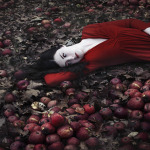
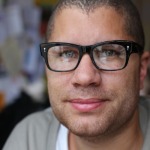

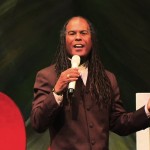
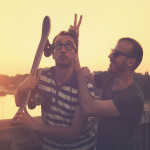

![Addicted to Love: A Chemical Explanation [TED Talk]](https://www.meetmindful.com/wp-content/uploads/2014/05/addicted-to-love1-150x150.png)
